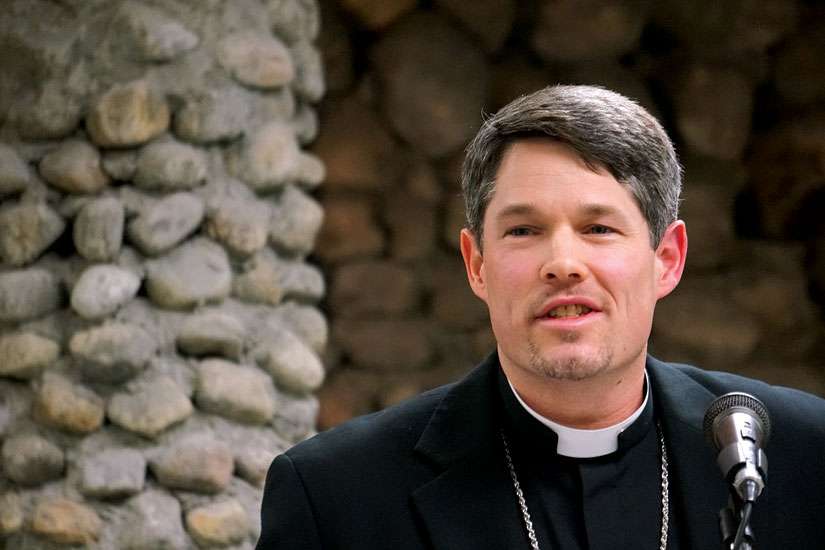Archbishop Terrence Prendergast and Bishop Christian Riesbeck, both speaking at The Family Conference at Ottawa’s Dominican University College Nov. 20-22, stressed the recent extraordinary Synod on the family is not about changing Church teachings.
Media reports ran rampant that the Church under Pope Francis would be softening its stance on same-sex marriage and opening up communion to divorced and remarried Catholics. But that was only a small part of the Synod though it garnered the most attention outside of Church circles.
“The full title of the Synod was Pastoral Challenges to the Family in the Context of Evangelization,” said Prendergast in a homily Nov. 22. “As a side note, we hear very few people making any reference to evangelization in and through the family. Most of the hype thus far has been on all of the challenges.”
Prendergast referred to a Catholic Register column by Fr. Raymond de Souza in which he described “two competing Synods: the ‘Synod of the media’ and the actual ‘Synod of bishops.’ ”
“We are all certainly grateful for the gift of the media, but should not be too naive and too quick to jump to conclusions based on third-party reports,” the archbishop said. “We need to wait to read the official and final Church documents.”
“We may have heard or read that the Synod has been about changing the teaching of the Church on marriage, family life or sexual morality. This is not true,” said Riesbeck in a keynote address Nov. 21.
Riesbeck explained the objective of the October Synod and next year’s full Synod of bishops “is to look at ways we can strengthen families which are the bedrock of our Church and our society — in their vocation and mission to witness to God’s love for His people.”
“There are many families that are beset by tensions and difficulties and have fallen apart through separation and divorce,” Riesbeck said. “Cohabitation and non-sacramental unions are part of the reality of today. More than ever, Christian families need to be encouraged and sustained as they strive to live and proclaim the Gospel, but we also need to be a ‘field hospital.’ ”
“Pope Francis has told us that as Church we need ‘to receive the needy, the penitent and not only the just or those who believe they are perfect,’ ” said Prendergast. “He has even gone further to state that we must not only welcome the lost, but go out and find them.
“This Synod was called in response to a crisis in our time: the crisis of the family,” he said. “In Canada and in the West our crisis is caused by ideologies which oppose the sanctity of human life and the institution of marriage and the family.”
Prendergast blamed what Pope Benedict XVI called “the Dictatorship of Relativism.”
“We don’t get to make the rules,” he said. “God makes the rules. Or rather, God has designed us beautifully, and written His plan for our happiness in our hearts and on our bodies,” he said. “Another common error today is a false sensitivity or tolerance which suggests it’s good to allow people to continue down a dangerous path. As if misleading people is somehow more loving.”
Riesbeck pointed out the healing comes in a personal relationship with Christ.
“There is a great need for a new evangelization or a re-evangelization,” said Riesbeck. “One of the reasons for much resistance to the Church’s teaching on moral issues related to the family identified by episcopal conferences is a want of an authentic Christian experience, namely an encounter with Christ on a personal and communal level, for which no doctrinal presentation, no matter how accurate, can substitute.”
Without that personal encounter, people have a hard time “understanding and embracing the beauty and power of the Church’s teaching on marriage and the family and moral issues related to these teachings,” he said.


